Canine eggheads enjoy playing with toys and retrieving objects.
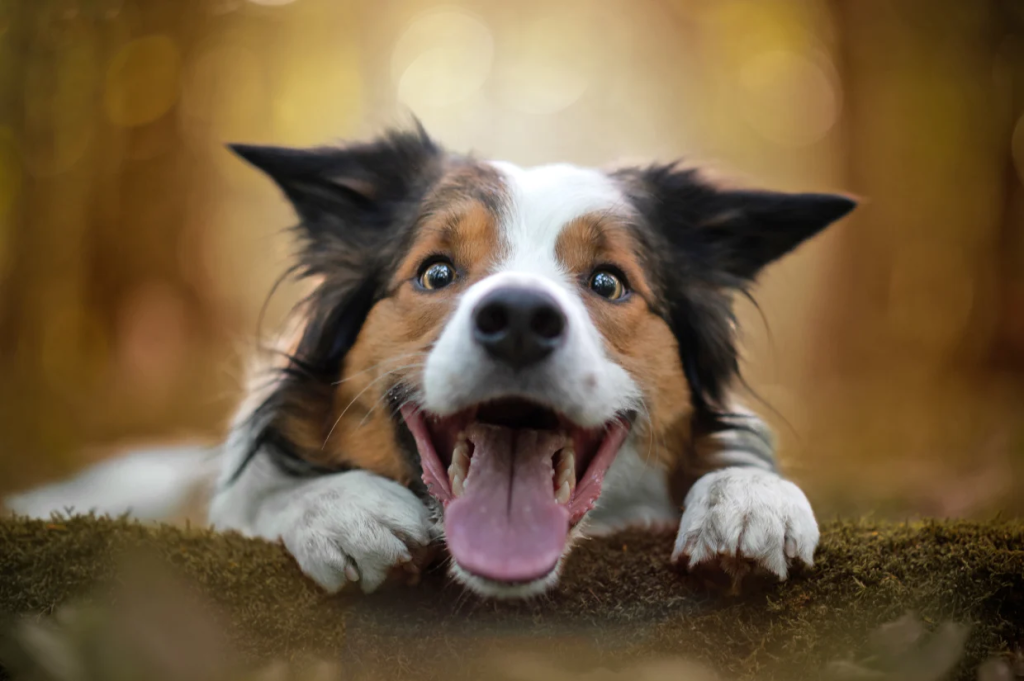
“Gifted” dogs, who have a rare talent for learning lots of words for objects easily, also turn out to be more playful than other dogs, a new study finds.
Prior research in humans has shown a link between playfulness and problem-solving abilities, so animal behavior researchers from Eötvös Loránd University in Budapest, Hungary, wondered if the same was true for rollicking pups.
What is a gifted dog? In the new study, it was Border collies who had proven in prior research that they were able to learn as many as 12 new words per week and then retain them for months.
To take a closer look at the possible association between giftedness and playfulness in dogs, Claudia Fugazza, a researcher in the university’s department of ethology (the study of animal behavior), and her colleagues asked the owners of 165 Border collies to fill out dog personality questionnaires. Twenty-one of the dogs were gifted and the other 114 were just randomly selected with no testing for word learning ability.
The surveys assessed the personality of the animals in five categories:
- Fearfulness, including fear of people, nonsocial fear, fear of dogs, fear of handling.
- Aggression toward people, including general aggression and aggression in certain situations.
- Activity/Excitability, including excitability, playfulness, active engagement and companionability.
- Responsiveness, such as trainability and controllability.
- Aggression toward animals, including aggression toward dogs, prey drive and dominance over other dogs.
For the evaluation of playfulness the owners were asked to rate their dogs in three areas:
- Dog gets bored in play quickly.
- Dog enjoys playing with toys.
- Dog retrieves objects, such as balls, toys and sticks.
The researchers focused solely on Border collies because earlier experiments found that the breed is more likely to be good at learning new words compared to others.
After collecting the survey responses, the researchers then compared the responses from owners of gifted dogs to those from the owners of dogs who had not been identified as gifted.
Playfulness was the only personality trait that was consistently different between the two groups.
It’s not clear from the study whether it’s the playfulness that helps the dogs learn more words, or whether the extra playful ones ended up with more opportunities to learn, said Fugazza, the study’s lead author, said in an email. That’s because gifted dogs tend to learn words for objects when their owners are playing with them.
Are playful dogs smarter?
Not exactly.
“Intelligence is the result of diverse cognitive traits that allow individuals to flexibly solve different types of problems,” Fugazza explained. “Giftedness refers to an extremely good capacity in the case of a specific skill.”
So, maybe gifted dogs are like people who score high on the verbal part of the SATs.
If your pup doesn’t learn words easily, it doesn’t mean it’s a dumb dog. Adam Boyko, an expert in canine genomics, reassures owners that canine intelligence is more than that.
“Both dogs and wolves are playful when they are puppies, but dogs really evolved to living in the human environment and to responding to social cues,” said Boyko, a specialist in the genetics of behavior and an associate professor at the Cornell University College of Veterinary Medicine. “It’s not surprising that the more playful ones exhibit better learning in the domain of learning human words. And it’s not surprising that Border collies, who are bred to respond to human cues, show the propensity to learn words more than other breeds.”
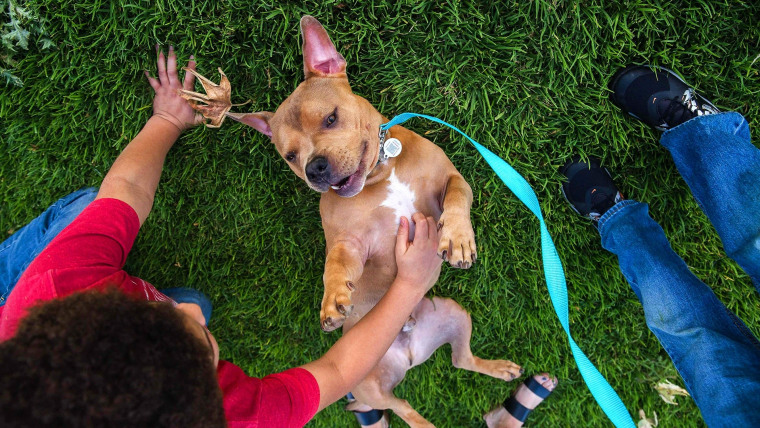
Other breeds of dogs might show intelligence in other ways, Boyko said. For example, wolves are very intelligent although they don’t typically pick up on human cues.
“But they can figure out how to escape,” said Boyko. “Where dogs would look for a person to help, wolves would see how humans did a latch and lock and then the wolves would do it themselves to get out.”
Boyko would like to take the study a step further and look at the genetics of the gifted dogs.
“This is a tantalizing correlation that might be meaningful if you are trying to build better service dogs,” he said.
One thing that can’t be determined from the study is whether the playfulness trait spurred owners to interact more with their dogs and thus teach them more words, said Dr. Nicholas Dodman, a professor emeritus at the Cummings School of Veterinary Medicine at Tufts University, CEO and president of the Center for Canine Behavior Studies and the author of “Pets on the Couch: Neurotic Dogs, Compulsive Cats, Anxious Birds and the New Science of Animal Psychiatry.”
Dodman said the study is interesting but needs to be replicated in a larger number of dogs.
“I would also like to see it done in a different breed,” he said.
The new findings might help people who want to buy or adopt a puppy. It suggests that playfulness might be a good attribute to consider.
“The playful ones might be more likely to interact with a person, assimilate words more easily and be more intelligent,” said Dodman.
“Inspirational Video: Visually Impaired Dog Shines Playing the Piano and Harmonizing with Sibling, Captivating Online Audiences and Becoming a Social Media Sensation”

A visually impaired beagle named Buddy Mercury has gained international acclaim on social media for forming an incredibly charming musical duo with his human sister. Despite his blindness, this music-loving canine exhibits remarkable piano-playing skills and harmonizes delightfully with his partner, showcasing a joyful spirit that remains undiminished.

Buddy Mercury, an eight-year-old beagle mix who was rescued, resides in Long Island, New York, with his human parents, Laurie and Glen Wolfe, and their 5-year-old daughter, affectionately referred to as Buddy’s “Lil Sis.” The couple adopted Buddy from a North Carolina animal shelter in April 2016 after he was discovered as a stray. They welcomed their daughter into the family the following year.

Laurie, 41, and Glen, 42, shared that Buddy has always been an integral part of their daughter’s life, fostering a heartwarming and endearing bond between the two. “It’s been a really sweet relationship to watch,” Laurie mentioned to The Epoch Times.
Buddy Mercury’s remarkable musical journey began just three months after his adoption, when Glen was taken aback while watching television. The piano unexpectedly started playing on its own, leaving Glen astonished. Quickly recording the enchanting moment on his phone, Glen captured Buddy playing the piano.
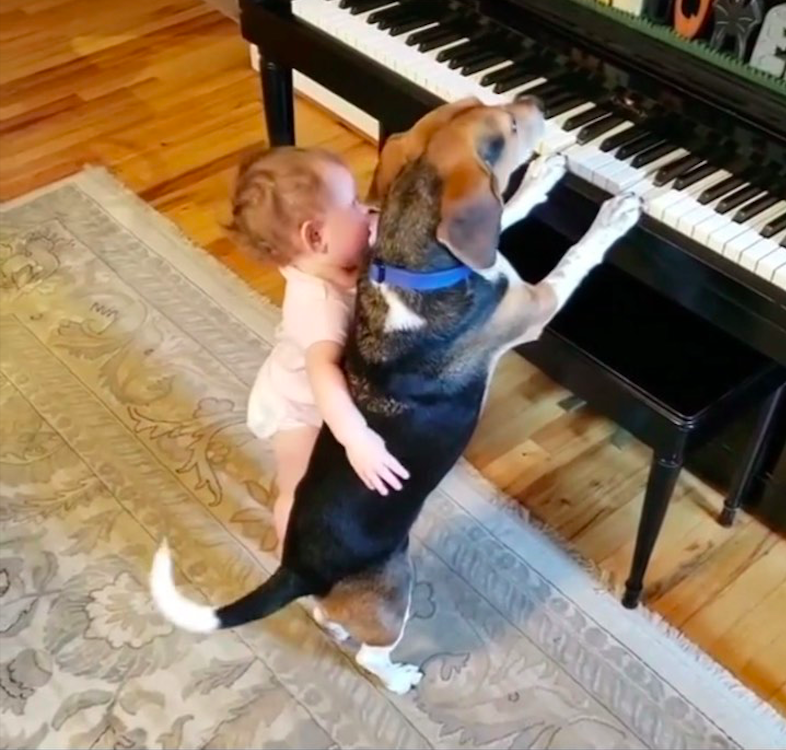
Initially, Buddy started “singing” in response to sirens from a nearby fire station. Soon, this became a routine, and Buddy began making musical melodies multiple times a day. Laurie shared, “It became part of his routine, and he’s really very happy when he plays because his tail is always wagging when he’s at the keys.”
Glen, a professional drummer, vividly remembers one of their earliest viral videos, in which their daughter entered the room with a guitar. The sequence of events that followed was nothing short of magical, as Buddy, looking out the window, joined in with his musical talents. “It was a magical moment, just unforgettable,” Glen fondly recalled.
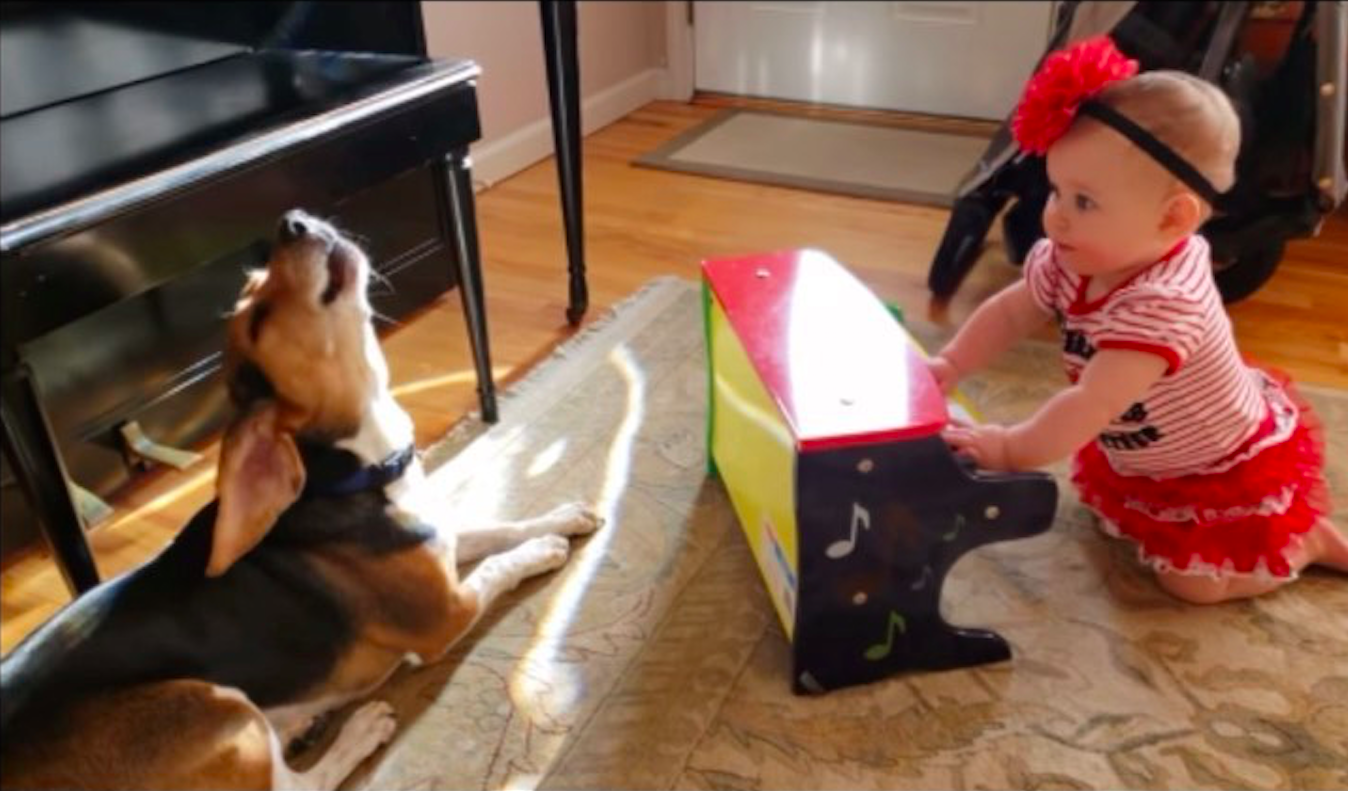
In the summer of 2021, Laurie and Glen noticed a change in Buddy’s eyes. Upon seeking veterinary care, they were informed that Buddy had progressive retinal atrophy, a hereditary condition leading to complete blindness. Despite the heartbreak, the vet emphasized the importance of maintaining Buddy’s routines, including his piano-playing. “Through our tears we were smiling,” Laurie shared.
Although Buddy now faces challenges due to his blindness, Laurie and Glen administer eye drops to ensure his comfort. Despite occasional bumps into objects, Buddy’s independence remains strong. In solidarity with Buddy’s adjustment to life without sight, the couple has chosen not to adopt more animals.
Their heartwarming family band, featuring their daughter’s singing and Buddy’s piano-playing, serves as a compelling message advocating for animal adoption. Buddy frequently participates in community events, fundraisers, and interviews, where he enthusiastically performs in exchange for treats.

While Laurie and Glen maintain their day jobs, they hold onto the possibility that their unique musical collaboration could eventually lead to new opportunities. Laurie expressed, “There’s a lot going on in the world, but I think that there’s no better cure for whatever is hurting someone [than] choosing to rescue an animal.”

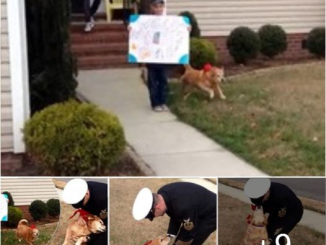

Leave a Reply